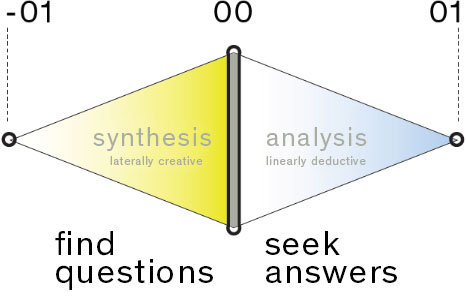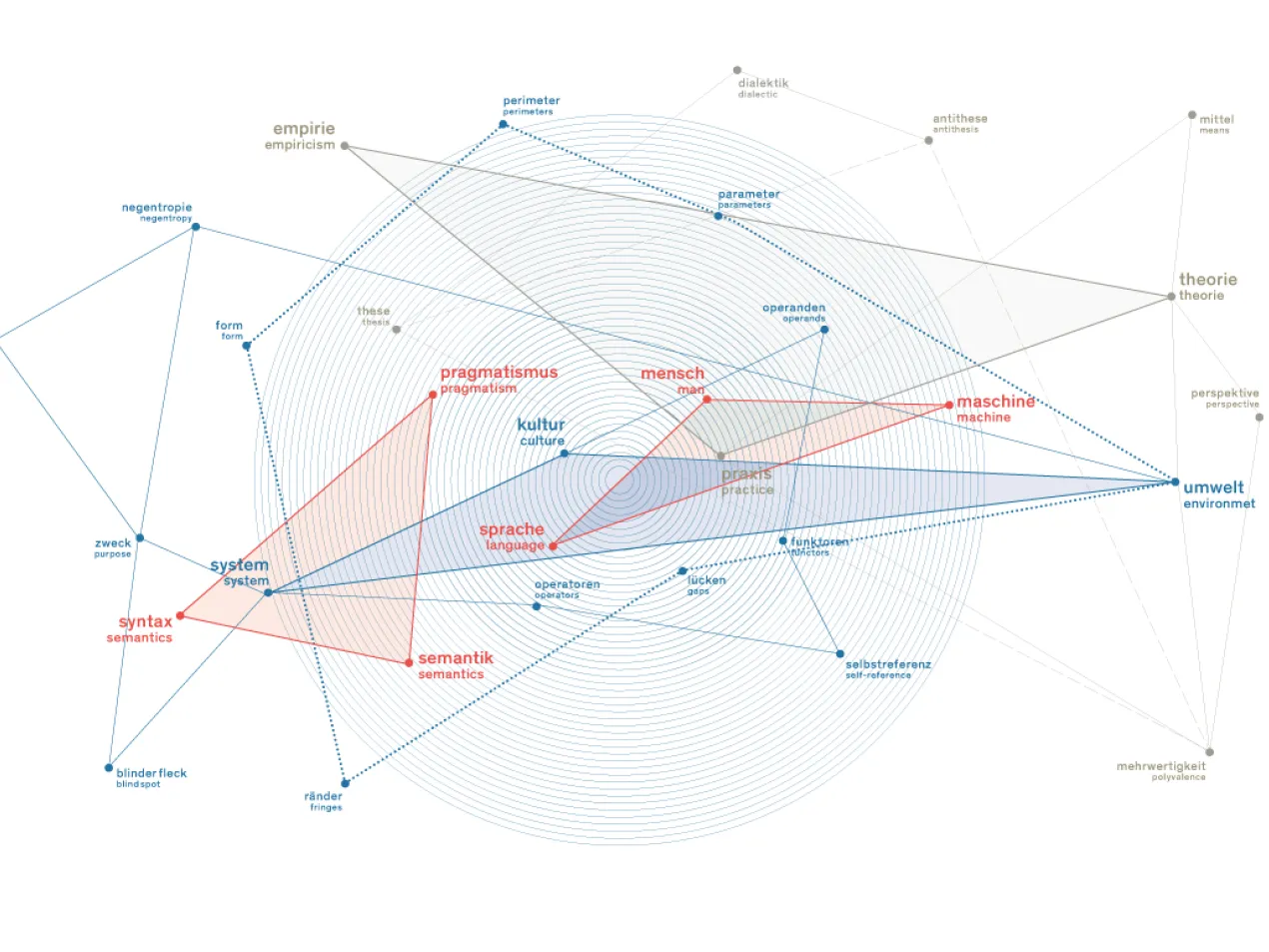-01
receptive & open minded: we try to bypass bias and expectations. »Simply« observe, listen and find questions: learning to see.

Our process doesn’t start at zero. We start at minus one: -01. It helps us remember two things:
— a) Just because the assignment is set doesn’t mean we know where to begin. And the way we start our process determines everything that follows.
— b) Experience and knowledge are not always an advantage. Unusual possibilities require us to question our assumptions. How else may we surpass what we already know?
receptive & open minded: we try to bypass bias and expectations. »Simply« observe, listen and find questions: learning to see.
act & observe: we create chaos to increase the possibilities. We therefore create and connect new contexts: learning to understand.
begin: the turning point, depending on time and budget. We connect our increased possibilities, understanding and openness: compose.
decide: we reduce the connected sense-patterns to feasible scenarios and activate them through meaning: determine motive and purpose.
implement: we translate questions, purpose and motive into a canon of form, material and technology: realize and/or supervise.
reflect: following the realization we observe the possible discrepancy between theory and practice: what can we learn?
During the phases »-01« and »synthesis« we are trying to find questions. Because the questions we ask determine our entire process and therefore our results.
During the phases »analysis« and »01« we seek to find answers. Different solutions for the same problems: considering both digital and analog perspectives, off- and online.
Sustainability is not a product. It is a holistic way of addressing, analysing and understanding projects and integrating them into their spatial, temporal and operational environment. In this view, every project has an infinite number of interactions. The expertise lies in deciding:
— In the network of interactions - where and how large do we set our radius: our system (project).
— Which connections remain and what is the one motivation that is common to all: the functor.
— How and with what can we strengthen or (possibly) weaken the functor?
— What effect do our actions have on the environment of our system (on other systems)?
